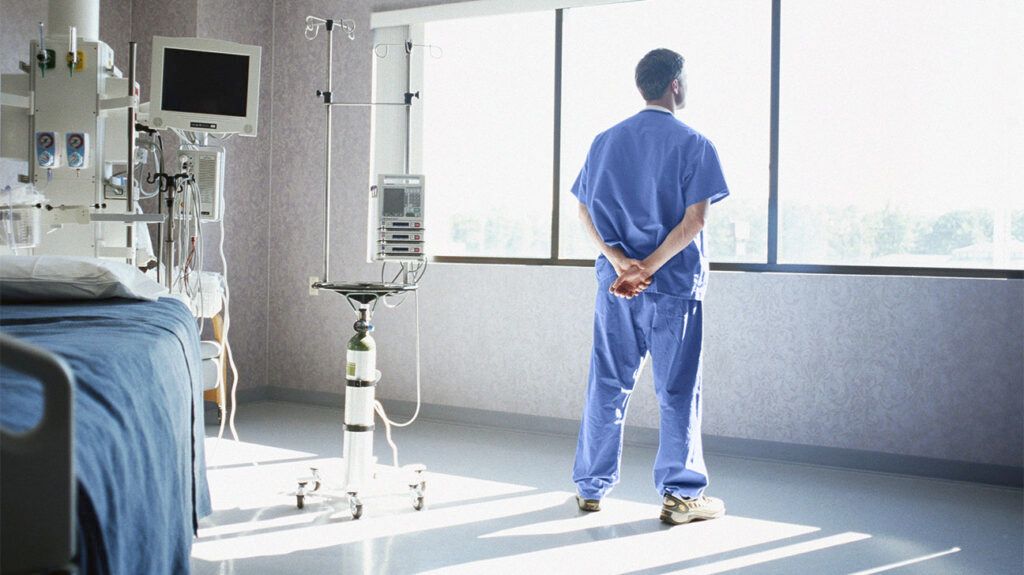Kidney failure refers to when a person’s kidney function drops significantly. Sudden kidney failure is acute kidney injury (AKI) and can cause death in extreme cases.
Healthy kidneys filter waste and extra fluid from the body and help maintain blood pressure and the body’s balance of salts and minerals. When a person experiences kidney failure, their kidneys are no longer performing these functions well enough to keep the body functioning as it should.
AKI refers to sudden kidney failure and can occur for a range of reasons, such as disease, other organs failing, or reactions to certain medications.

AKI occurs suddenly, developing over days or hours. The likelihood of dying due to AKI depends on the stage of the condition and other health conditions affecting the body.
It is possible to die suddenly from AKI. However, the likelihood of AKI becoming fatal increases over time, so most deaths do not occur suddenly.
What is kidney failure?
Kidney failure occurs when a person’s kidneys function less than 15% of their typical capacity. This can lead to a buildup of waste products and excess fluid in the body, disrupting the balance of bodily functions.
Kidney failure is the final stage of kidney disease and can occur suddenly or gradually over time.
Acute vs. chronic kidney disease (CKD)
Acute kidney failure occurs suddenly, usually within 48 hours or sometimes up to 7 days.
CKD develops into kidney disease that develops in stages over time and may occur due to long-term health conditions such as diabetes, high blood pressure, or high cholesterol.
The symptoms of AKI can vary depending on the cause and severity of the condition and other illnesses the individual is experiencing.
Possible symptoms include:
- nausea or vomiting
- dehydration
- confusion or mood changes
- urinating less or not at all
- fatigue
- pain or pressure in the chest
- pain in the lower sides of the back
- seizures
- coma
A person needs to contact a doctor or seek emergency help if they think they may be experiencing kidney failure. It is possible to treat AKI and prevent the condition from worsening, which may lead to more severe symptoms or death.
Other symptoms to look out for include:
- swollen feet, ankles, or face
- shortness of breath
- blood in the urine
- feeling more tired than usual
In most cases, AKI occurs due to a combination of different factors. These factors usually fall into three different categories.
Emergent health problems
Certain health emergencies can cause AKI due to the stress the body is under.
Examples include:
- anaphylaxis
- blood clots or other blood vessel blockages
- hypotension or severely low blood pressure
- injury
- severe dehydration
- major surgery
- severe infection or sepsis
- complications of pregnancy
- prolonged vomiting or diarrhea
- haemorrhage
Related conditions
This refers to other diseases or conditions that can stress a person’s kidneys.
Related conditions that may cause AKI include:
- autoimmune kidney diseases
- CKD
- a flare-up of diabetes
- kidney infection
- kidney stones
- liver damage or disease
- heart diseases
- vasculitis, which involves the chronic inflammation or scarring of blood vessels
- cancer
- multiple myeloma, a form of blood cancer
Medications
Certain medications can contribute to AKI by reducing blood flow to the kidneys, but they are not usually the sole cause of the condition.
These medications include:
- nonsteroidal anti-inflammatory drugs (NSAIDs)
- angiotensin converting enzyme (ACE) inhibitors
- certain diuretics
- certain antibiotics for severe infections
- certain illegal or recreational drugs
Treatment for AKI will depend on the underlying cause. A doctor may need to run a
Treatments can include:
- dialysis
- antibiotics to treat infections
- medications to control blood pressure
- fluids to treat dehydration
- diuretics to maintain healthy fluid levels in the body
- stopping medications contributing to AKI
The mortality rate for those in the hospital with AKI is
The condition is more likely to be fatal when there are several factors contributing to kidney failure. This can cause complications when treating the condition effectively. Without treatment, AKI can damage other organs, such as the heart, brain, or lungs.
Most people with AKI make a full recovery and go on to typical lives. However, some individuals may develop CKD after experiencing AKI due to kidney damage. In certain cases, the individual may need to undergo ongoing dialysis.
It is not always possible to prevent AKI or kidney failure. However, certain practices may help promote kidney health and reduce a person’s risk of experiencing kidney failure.
The
- maintaining a moderate weight
- getting regular exercise
- avoiding smoking
- reducing salt intake
- managing chronic health conditions
- increasing fruits and vegetables in the diet
- reducing alcohol use
It is also important for those with risk factors for kidney disease to look out for symptoms relating to CKD and AKI and contact a doctor as soon as possible if they think they may be unwell.
Acute kidney injury (AKI) refers to sudden kidney failure. In some cases, it is possible to die suddenly due to AKI, although the condition is more likely to become fatal over time rather than suddenly. AKI occurs due to a combination of different factors that doctors can treat.
Most people fully recover from AKI, but some may develop chronic kidney disease and require long-term treatment. Certain health and diet practices can help maintain kidney health and reduce the risk of experiencing problems.


